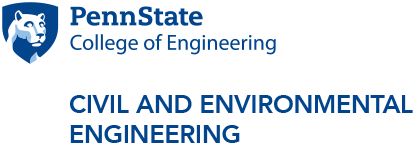CEE Virtual Seminar Series: Scientific Machine Learning for Efficient Computational Design of Engineering Systems
The recording for this seminar is now available
Abstract: The focus of this talk is on using deep neural networks (DNN's) to approximate the response of systems that are governed by physical laws, represented by differential equations. To train DNN's for such scientific applications, typical supervised learning approaches used in computer vision or language processing applications often require large datasets of input-output samples. Such data dependency can prohibit using supervised techniques in scientific applications that are characterized by data scarcity, e.g. problems simulated by high-fidelity discretization-based solvers. In this talk, Dr. Meidani will present recent contributions in using deep neural networks to solve engineering problems. This includes using neural network models to accelerate robust topology optimization and using the physics-based simulation-free deep learning approach that gains insights directly from the physical laws and bypasses the costly need to generate training data from repetitive simulations. In particular, Dr. Meidani will show how physics-based DNN's can solve random differential equations, how their training can be improved by an active learning strategy, and how an adaptive physics-based deep learning can accelerate Markov chain Monte Carlo sampling in a Bayesian inference.
Biography: Dr. Hadi Meidani is an assistant professor in the Department of Civil and Environmental Engineering at the University of Illinois at Urbana-Champaign (UIUC). He earned his doctoral degree in civil engineering and his master's degree in electrical engineering from the University of Southern California (USC) in 2012. Prior to joining UIUC, he was a postdoctoral research associate in the Department of Aerospace and Mechanical Engineering at USC (2012-13) and in the Scientific Computing and Imaging Institute at the University of Utah (2013-14). He is a recipient of the National Science Foundation CAREER Award to study fast computational models for infrastructure systems. His research interests are uncertainty quantification, scientific machine learning, and design under uncertainty.
Additional Information:
Lecture begins at 4 p.m. and will be followed by a question and answer session. Event concludes at 5:30 p.m. Registration is required.
Event Contact: Tim Schley




